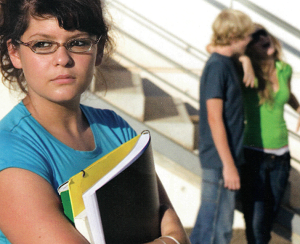


Lonely sidewalks and busy streets can be dangerous places for kids. So too can school hallways — because of bullying. And it's not just for boys. From sending nasty text messages to spreading hurtful rumors, girls can be bullies. A large U.S. survey of children younger than age 18 found that almost 13 percent of girls had been physically bullied and 24 percent had been emotionally bullied within the last year.
Girls who are bullied face a higher risk for behavioral problems, including depression, eating disorders and suicidal thoughts and acts. Research shows that frequent bullying is more common among "tweens" than in older or younger kids.
Be Alert for Signs of Bullying — and Being Bullied
Boys are more apt to bully physically. Girls more often use subtler, nonphysical actions, like gossiping and teasing. If your daughter is being bullied, you might notice mood swings, changes in eating or sleeping habits or skipped school days. Another clue is "victim" body language, like avoiding eye contact and hanging her head.
Bullying takes a toll on perpetrators, too — sometimes leading to family, emotional, legal and substance abuse problems both as children and in the future as adults. So, don't ignore bully-like behavior. Take note if your daughter gets satisfaction from others' pain, discomfort, fear or conflicts. Watch for a lack of empathy, intolerance for others and blaming people for her problems.
Nip Bullying in the Bud
If your daughter is a bully, try these tips:
- Discuss the problem with your daughter's doctor, principal, teachers or school counselor.
- Speak up if you witness your daughter making fun of someone, even if she's "just joking."
- Give her specific examples of the hurt she has caused others.
- If she continues bullying, consider having her evaluated by a mental health professional.
If your daughter is being bullied:
- Tell her it's not her fault. Explain that most bullies make others feel bad to boost their low self-esteem.
- Discourage her from becoming visibly upset or fighting back. Instead, suggest remaining calm and walking away.
- Rehearse possible responses to the bully, such as looking the bully in the eye and saying, "If you don't stop, I'm going to tell the principal."
- Encourage her to travel to and from school and other places with a group of friends.
- Ask your daughter's principal, school counselor or teachers to intervene if necessary.
Source: Good Neighbor Pharmacy Health Connection, August 2013